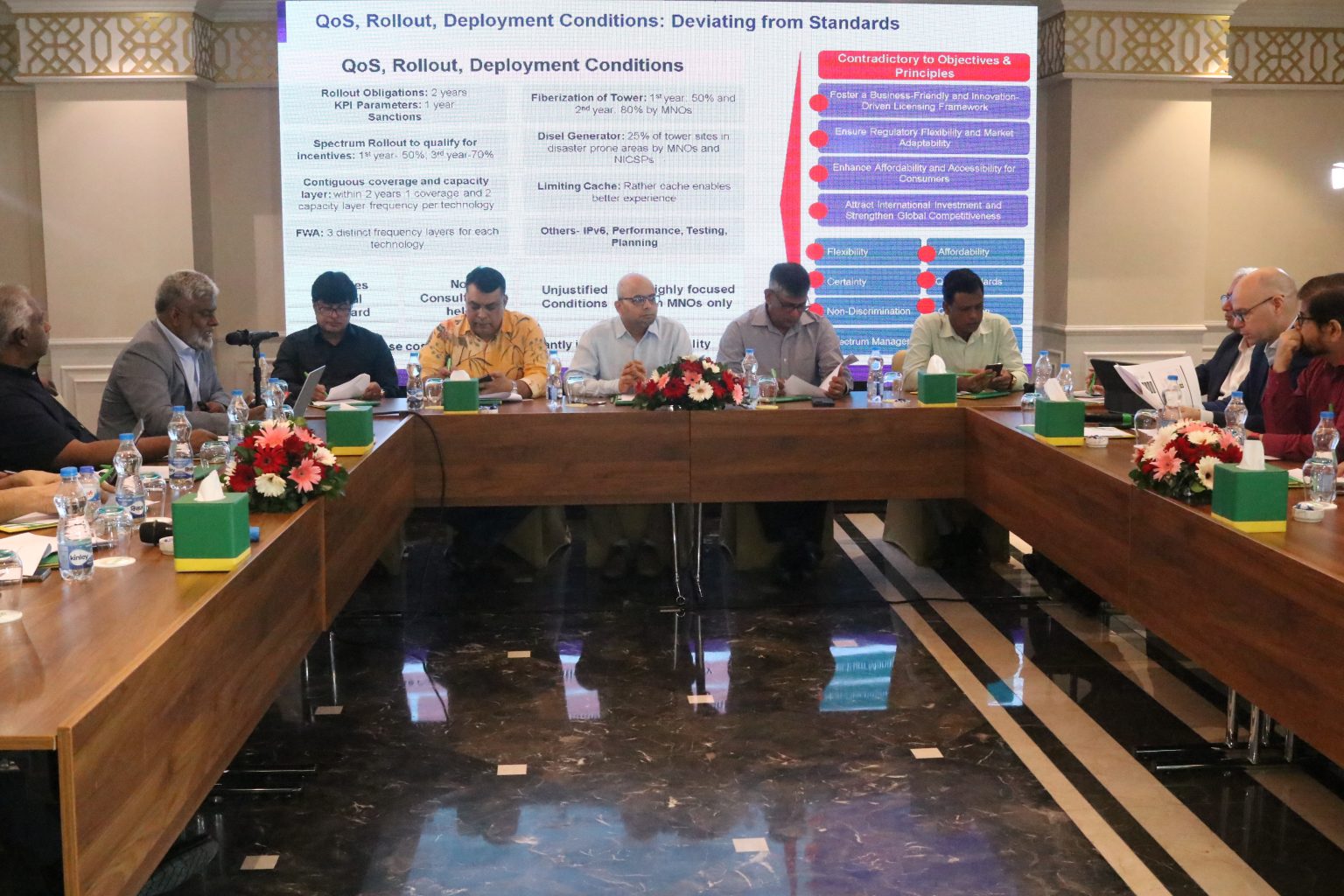Industry leaders and government officials have reached consensus that Bangladesh’s forthcoming telecommunications policy must place consumer interests at its core, though significant hurdles remain in rebuilding stakeholder trust and attracting critical investments.
These conclusions emerged during a pivotal roundtable discussion titled “Telecommunications Network and Licensing Policy Reform,” hosted by the Telecom and Technology Reporters Network, Bangladesh (TRNB) at Dhaka’s Hotel Holiday Inn on Saturday.
Special Assistant to the Chief Adviser Foyez Ahmed Taiyab framed the policy as a necessary corrective measure, stating it aims to “liberate the telecom sector from 15 years of fascism” while acknowledging potential disruptions to certain interests. He leveled serious allegations against the previous administration, claiming they “grossly misused the telecommunications ecosystem by indiscriminately issuing over 3,400 licenses.”
The official provided technical insight into current infrastructure limitations, explaining that 4G services are being delivered through 1800/2100MHz bands rather than the optimal 700/900MHz spectrum, resulting in inadequate signal propagation that fails to ensure comprehensive coverage.
Bangladesh Telecommunication Regulatory Commission (BTRC) Chairman Md. Emdadul Bari highlighted the sobering reality that approximately 90 million citizens remain disconnected from network services, despite 65 million active social media users – a paradox underscoring the nation’s persistent digital divide.
While pledging government action to bridge this gap, the discussion also revealed operator concerns about proposed investment requirements. Mobile network representatives cautioned that escalating annual operational costs coupled with mandates for 15% local investment could significantly deter foreign capital inflows critical for infrastructure upgrades.
The high-profile gathering brought together key sector players including Post and Telecommunications Division Secretary Md Zahirul Islam and chief executives from all major mobile operators – Grameenphone, Robi, Banglalink and Teletalk Bangladesh Ltd. Their participation signaled the policy’s far-reaching implications for Bangladesh’s 180 million-plus mobile subscribers and its $3 billion telecommunications industry, particularly as the nation prepares for eventual 5G deployment.
The roundtable surfaced fundamental tensions between immediate consumer protections and long-term sector sustainability, with operators warning that poorly calibrated regulations could undermine network expansion and service quality improvements.


